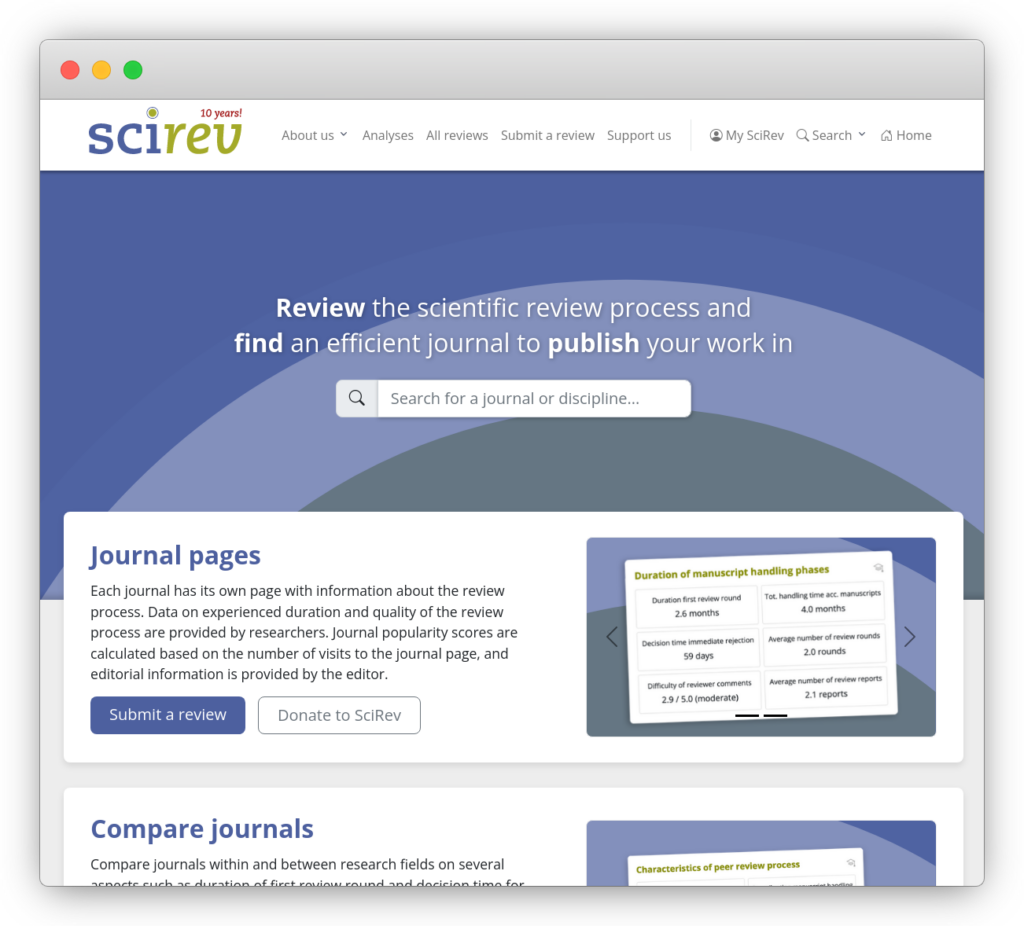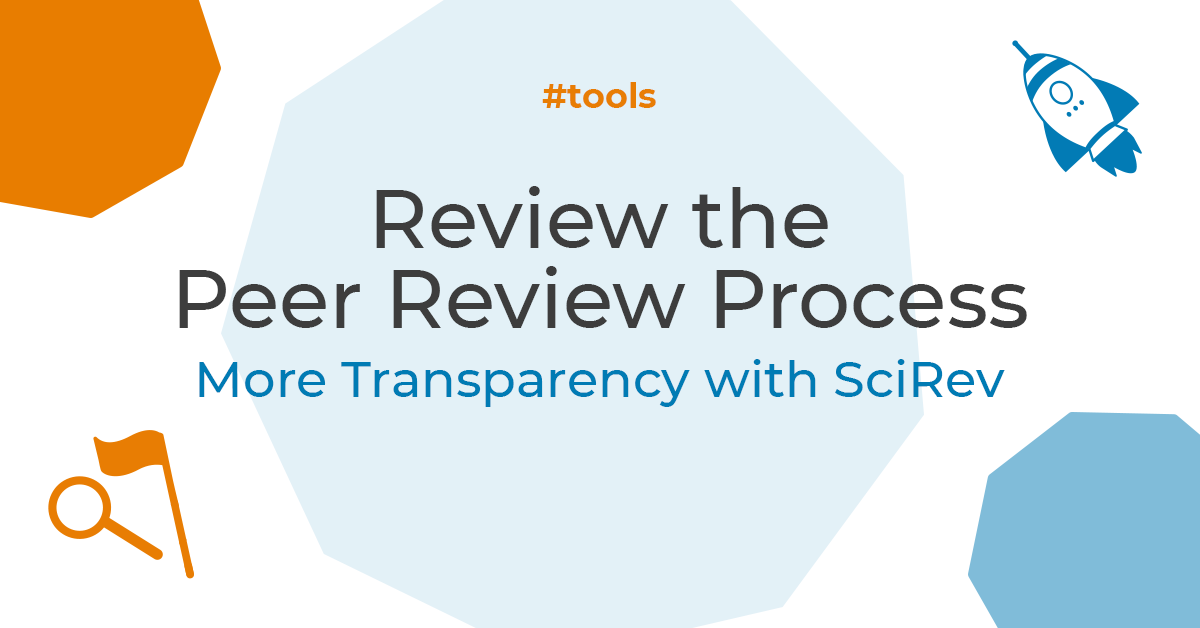Tired of endlessly waiting for an uncertain outcome? This is how review processes of academic journals are often perceived. SciRev was born based on researchers' experiences with the scientific review process. A short introduction to a tool that is made by researchers for researchers.
The SciRev team around Jeroen Smits, president of SciRev and professor of economic and human development at the department of Economics of Radboud University, aims to improve the unpleasant situation of researchers during journal review processes. SciRev makes the processes more transparent. It offers researchers the opportunity to share their experiences and to select an efficient journal to submit their work. For this, it compares publication speeds, peer review quality and other journal statistics. Thus, researchers can systematically decide for a journal with a quick review procedure to have their work published earlier.
Speeding up knowledge production
Thereby, SciRev also helps speeding up scientific knowledge production to prevent unnecessary loss of time in the research process. The goal: As efficient journals get credits for their efforts in the quick handling of review processes, less efficient journals might get motivated to reorganise their processes. Thus, one of the weakest links in the process of scientific knowledge production could become more efficient and unnecessary loss of time could be prevented. So far, valuable new knowledge often spends too much time untouched and useless at reviewers' desks and editorial offices.

SciRev contains hundreds of journals from economics and business studies which are organised in eleven subfields. The information on review processes provided by researchers is translated into scores. Many researchers provide a motivation for their overall rating which reveals a picture of what researchers experience when trying to publish their work. There are also statistics available on the average duration of the first review round for single disciplines.
This is how SciRev helps you to select a journal:
- Search for a specific journal: You get detailed information on the chosen journal, containing impact factors provided by the editor and in particular information based on other researchers' experiences. These encompass information on the manuscript handling phases, like the duration of the first review round and decision time until an immediate rejection, the total manuscript handling time and an overall rating of the review experience. Also, characteristics of the Peer Review process are being offered as well as a glimpse of the last review.
- Search by discipline: Search for a scientific discipline or pick one in a list of all disciplines. As a result you will get a table giving you an overview of journals. The table contains: the duration of the first review round and decision time until an immediate rejection, the average time the manuscript was under review or at the editorial office, the average number of review rounds, the average number of review reports received in the first review round, the experienced difficulty and quality of the reviewer comments in the first review round, an overall rating of the review process and the number of reviews that were entered by researchers.
Share your own experience with review processes
More reviews of researchers based on their experiences with journals would further boost SciRev´s usefulness. You can begin to submit your review by searching a journal you have already submitted a paper to. If a specific journal you want to review is already displayed, there is a button on the top right saying "review this journal". To submit a review, you have to register with SciRev at first.
More helpful information and tools for selecting a journal
Further criteria for selecting a journal are described in the entry "Finding a suitable journal for a publication" in the Open Economics Guide. There is also information gathered on other tools helpful when selecting a journal for publication https://openeconomics.zbw.eu/en/knowledgebase/tools-for-the-selection-of-the-appropriate-journal-publication-location/?cat=107 .
The Open Economics Guide's Open Science Tools Catalogue contains plenty of tools helpful for publishing research work as well as for other phases of the research process.
Another tip: Sign up to the free Open Economic Guide newsletter to stay up-to-date on everything Open Science!
